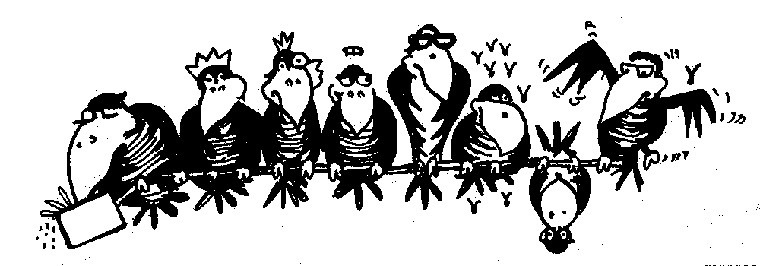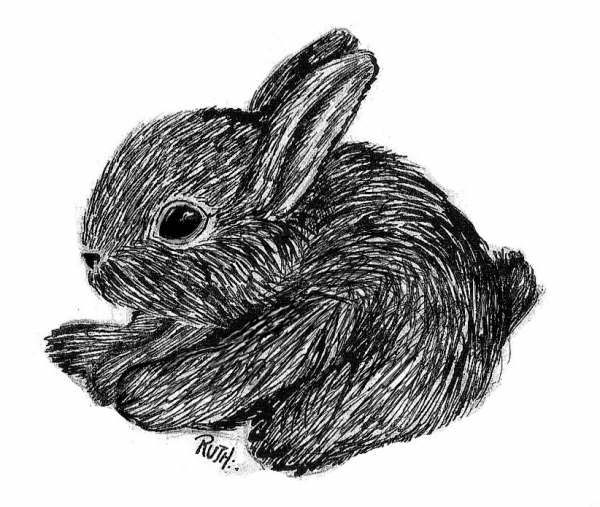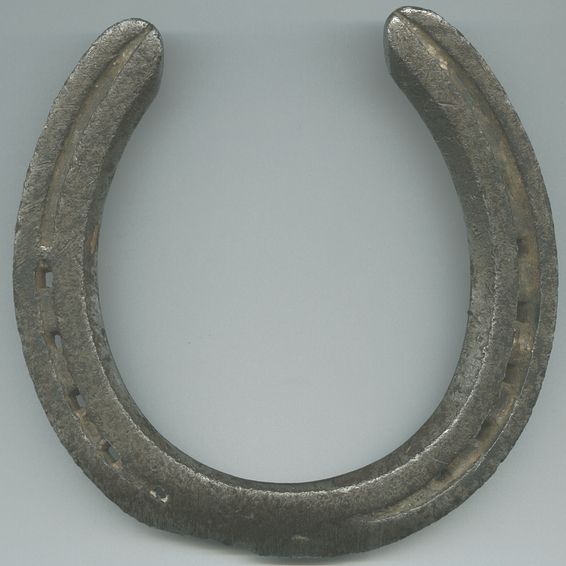ARE YOU SUPERSTITIOUS?

You not put new shoes on the table, "do not open an umbrella indoors? Prevents to spill the salt on the table? Not doing anything on Friday the 13th", or you run when you see a black cat in the way?
! So you are a British ¡
Superstitions can be defined as, "irrational beliefs, especially with regard Superstitions can be defined as, "irrational beliefs, especially with regard to the unknown "to the unknown" (Collins English Dictionary).
The superstitions are an interesting subject since they are many people who fall in any type of superstitions without knowing his because or its origin. Today, when as much the objective tests are valued, few are the people that, interrogated thoroughly, they do not admit to profess one or two superstitions, or more.
Perhaps all this has certain logic, since the superstitions constitute a very old part of the human inheritance. To long it of history, the superstition of has been often the religion of others. The primitive man, when looking for explanations for phenomena such as the ray, the thunderclap, the eclipses, the birth and the death, and devoid of knowledge on the laws of the nature, developed an inheritance in the invisible spirits.
By another part, the miracle of which a tree grew from a seed, or the appearance of a frog from a tadpole, confirmed a divine intervention. With a full daily existence of dangers and adventures, it reached the conclusion that the world was populated by vindictive spirits who surpassed in number to the beneficial ones. Therefore, between all averages the superstitious beliefs that we have inherited they have superiority the destined one to protect itself against badly.
In our days, to protect to us of that possible one badly that it can spoil our intentions, we used actions and utensils that can stop it, or to diminish it at least. The following are the general superstitions of British people to be good or bad luck, from Woodlands Junior School.
 If you want “Good Luck” try the following:
If you want “Good Luck” try the following:
· Lucky to meet a black cat. Black Cats are featured on many good luck greetings cards and birthday cards in England.
· Lucky to touch wood. We touch; knock on wood, to make something come true.
· Lucky to find a to clover plant with four leaves.
· White heather is lucky.
· A horseshoe over the door brings good luck. But the horseshoe needs to be the right way up. The luck runs out of the horseshoe if it is upside down. Horseshoes are generally a sign of good luck and feature on many good luck cards.
· On the first day of the month it is lucky to say "white rabbits, white rabbits white rabbits," before uttering your first word of the day.
· Catch falling leaves in autumn and you're having good luck. Every leaf means a lucky month next year.
· Cut your hair when the moon is waxing and you're having good luck.
· Putting money in the pocket of new clothes brings good luck.
But don`t do this is “Bad Luck”
 · Unlucky to walk underneath a ladder.
· Unlucky to walk underneath a ladder.
· Seven years bad luck to break a mirror. The superstition is supposed to have originated in ancient times, when mirrors were considered to be tools of the gods.
· Unlucky to see one magpie, lucky to see two, etc..
· Unlucky to spill salt. If you do, you must throw it over your shoulder to counteract the bad luck.
· Unlucky to open an umbrella in doors.
· The number thirteen is unlucky. Friday the thirteenth is a very unlucky day. Friday is considered to be an unlucky day because Jesus was crucified on a Friday.
· Unlucky to put new shoes on the table.
· Unlucky to pass someone on the stairs.
SPETIAL SUPERSTITIONS
 Food Superstitions
Food Superstitions
When finished eating a boiled egg, push the spoon through the bottom of the empty shell to let the devil out.
In Yorkshire, housewives used to believe that bread would not rise if there was a corpse (dead body) in the vicinity, and to cut off both ends of the loaf would make the Devil fly over the house!

Table Superstitions
Table if you drop a table knife expect a male visitor, if you drop a fork a female visitor.
Crossed cutlery on your plate and expect a quarrel.
Leave a white tablecloth on a table overnight and expect a death.
Animal Superstitions
Animals feature a lot in our superstitions as they do in superstitions around the world.
 One ancient British superstition holds that if a child rides on a bear's back it will be protected from whooping-cough. (Bears used to roam Britain but now they are not seen on our shores)
One ancient British superstition holds that if a child rides on a bear's back it will be protected from whooping-cough. (Bears used to roam Britain but now they are not seen on our shores)
 In some parts of the UK meeting two or three Ravens together is considered really bad. One very English superstition concerns the tame Ravens at the Tower of London. It is believed if they leave then the crown of England will be lost.
In some parts of the UK meeting two or three Ravens together is considered really bad. One very English superstition concerns the tame Ravens at the Tower of London. It is believed if they leave then the crown of England will be lost.
If a Sparrow enters a house it is an omen of death to one who lives there. In some areas it is believed that to avoid ill luck any Sparrow caught must be immediately killed otherwise the person who caught it will die. It is said to be bad luck if you see bats flying and hear their cries. In the middle ages it was believed that witches were closely associated with bats.
It is said to be bad luck if you see bats flying and hear their cries. In the middle ages it was believed that witches were closely associated with bats. 
In some areas black Rabbits are thought to host the souls of human beings. White Rabbits are said to be really witches and some believe that saying 'White Rabbit' on the first day of each month brings luck. A common lucky charm is a Rabbit's foot, but not for the Rabbit.
 It is thought very unlucky to have the feathers of a Peacock within the home or handle anything made with them. This is possibly because of the eye shape present upon these feathers i.e. the Evil-Eye associated with wickedness. This is possibly because of the eye shape present upon these feathers i.e. the Evil-Eye associated with wickedness.
It is thought very unlucky to have the feathers of a Peacock within the home or handle anything made with them. This is possibly because of the eye shape present upon these feathers i.e. the Evil-Eye associated with wickedness. This is possibly because of the eye shape present upon these feathers i.e. the Evil-Eye associated with wickedness.
 Wedding Superstitions
Wedding Superstitions
Bride and groom must not meet on the day of the wedding except at to alter.
The bride should never wear her complete wedding clothes before the day.
For good luck the bride should wear “something borrowed, something blue, something old and something new”.
The husband should carry his new wife over the threshold of their home.
ORIGIN OF SOME SUPERSTITIONS
 RABBIT LEG
RABBIT LEG
They say that the person, who persecutes the good luck, had to take with himself the leg of a rabbit. Historically, the rabbit leg had magical powers. In Europe, the luck attributed to a rabbit leg, must to a belief rooted in an old mythological emblem, because the man thought that he descended from the animals. Each tribe tapeworm an animal like mascot.
In Biblical Literature, that belief is the origin of numerous laws that prohibit the mythical animal consumption certain. Also we have inherited of the myths the custom to use a mascot for the sports, which is to attract the luck on the equipment, and also our tendency to classify groups of people by means of images or animal characteristics.
Celts, for example, thought that this animal spent as much time under earth, because it maintained a secret communication with the underground world of spirits. So the rabbit had information that to the human beings was denied to them. And the fact that most of the animals, among them the man, is born with the closed eyes, whereas the rabbits arrive wide at the world with the open eyes, conferred a wisdom image to them. In reality, it is the hare the one that is born with the open eyes because the rabbit does with the closed eyes.
However, it was the fecundity of the rabbit which contributed to give to certain parts of its body his more intense relation with the good luck and the prosperity. To have any part of the rabbit, like the tail, an ear or a leg, assured the good fortune to any person.

HORSESHOE
A horseshoe, the footwear of Horses, mules and donkeys, hung somewhere, is considered like most universal of all the amulets of the luck.
The horseshoe was a powerful talisman at all the times and all the countries in which the horse existed. Although the Greeks introduced the horseshoe in the western culture in century IV, and they considered it like symbol of good luck, the legend attributes to san Dunstan the salary granted to the horseshoe, hung on the door of a house, a special power against badly.
According to the tradition, Dunstan, blacksmith of profession but that would get to be archbishop of Canterbury in the year 959, received a day the visit of a man that requested horseshoes to him for its feet, feet of form suspiciously similar to hooves. Dunstan recognized immediately to Satan in its client, and explained that, to make his task, he was unavoidable to chain to the man to the wall.
Deliberately, the blessed tried that its work was so painful, that the chained devil requested mercy repeatedly to him. Dunstan refused to loosen it until the devil swore solemnly to never enter a house where there was a horseshoe hung on the door.
From the appearance of this legend in century X, the Christians had the horseshoe in high esteem later, placing it first on the threshold of the door and transferring it to the center of this one, where he acted the double as of talisman and latch. This it is the origin of the latch in horseshoe form. In other times, the Christians celebrated the celebration of san Dunstan, the 19 of May, with games in which horseshoes were used.
A horseshoe could not be hung anyway: its correct disposition is with the ends upwards, because otherwise its reserve of luck drained.
In the British Islands, the horseshoe stayed like powerful symbol of luck until entered good century XIX. A popular Irish enchantment against badly and the disease - originated simultaneously the legend of san Dunstan- it said: “Father, Son and Spirit Saint, you nail the devil in a wood.” In 1805, when the British admiral lord Horace Nelson faced the enemies of his nation in the battle of Trafalgar, superstitious the English nailed a horseshoe in the mast of his ship admiral, the Victory.
 NUMBER 13
NUMBER 13
The surveys demonstrate that, between all the referring superstitions to the bad luck, the restlessness related to number thirteen is the one that nowadays affects more people.
All this goes back to Nordic mythology in the pre Christian age. To a banquet in the Valhalla twelve Gods were invited. Loki, the spirit of the fight and badly, was strained by the good ones, with which the number of the presents reached thirteen. In the fight that took place to expel to Loki, Balder, the favorite of the Gods, found the death.
This one is one of the first written references to the bad luck related to number thirteen. From Scandinavia, the superstition spread through Europe, in South direction.
When beginning the Christian era, already was well established in the Mediterranean countries. Then, they assure the folklorists, the belief remarkably was reinforced, perhaps for always, by the most famous supper of history: the Last Supper. Christ and his apostles were thirteen. Less than twenty-four hours after this supper, Christ was crucified.
The mythologists have considered the Nordic legend like a preconception of the Christian banquet. They draw up parallels between the treasonous Judas and Loki, the spirit of the fight, and between Balder, the favorite God that were assassinated, and Christ, who was crucified. The unquestionable thing is that, from principles of the Christian age in ahead, to invite to have supper to thirteen people it means to look for a disaster.
But in according to which countries, if the 13 fall in Friday the thing is put ugly. According to the tradition, in Friday day 13, Eva it touched to Adam with the apple, the Coffer of Noah initiated its long navigation during Diluvium, a confusion of languages ended the construction of the tower of Babel, the Temple of Salomon was devastated, and also in this day Christ it died in the cross.
However, the true origin of the superstition it also seems to be a story in Scandinavian mythology. The name of Friday - Friday in English, Freytag in German comes from Frigg, the liberal goddess of the love and the fertility. When the Scandinavian and Germanic tribes became to the Christianity, Frigg was repudiated and exile to the summit of a mountain, considered like witch.
One thought that every Friday the goddess, spiteful, held a meeting with other 11 witches, plus the demon - with which they were the 13 assistants, and conspired to cause disasters during the following week. During many centuries, in Scandinavia Friday was known like the “Sabbath of the witches”.
TO SPILL THE SALT
 The salt was the first seasoning in the feeding of the man and altered of such way its nourishing habits that are not to surprise that the act to spill so precious ingredient badly got to be equivalent to an augury. After an accidental spilling of salt, the canceled superstitious gesture, like sending a tiny amount of the same one over the left shoulder, was practical common between the Sumerians, the Egyptians, the Assyrians and, later, the Greeks.
The salt was the first seasoning in the feeding of the man and altered of such way its nourishing habits that are not to surprise that the act to spill so precious ingredient badly got to be equivalent to an augury. After an accidental spilling of salt, the canceled superstitious gesture, like sending a tiny amount of the same one over the left shoulder, was practical common between the Sumerians, the Egyptians, the Assyrians and, later, the Greeks.
For the Romans, the salt was an element so valuable to seasoning the meals like curing wounds, and therefore they coined expressions in which this word was used, some of which have arrived at us. The Roman writer Pretorius, in his Satiric, created the phrase “is not worth his salt” like opprobrium for certain Roman soldiers, to whom special stipends for their rations of salt occurred them, calls salary - “money of salt”, origin of our word “salary”.
The archaeologists who do about 8,600 years, in Europe explain worked actively in which he is created were the first discovered mines of salt in the continent: the deposits of Hallstein and Hallstatt in Austria. Today, these grottos are tourist attractions, located near the city of Salzburg, that, clear is, means “City of Salt”.
The salt purified the water, it conserved the meat and the fish, and heightened the flavor of the food, and the Hebrews, Greek and the Romans used the salt in their main sacrifices.
 RAVENS IN THE TOWER OF LONDON
RAVENS IN THE TOWER OF LONDON
A legend exists that that says the crown of England will fall the day that are not crows in the tower of London. In order to avoid this catastrophe, the British government maintains a civil employee official, of high rank, dress in time clothes, call “master of the birds”, who maintains an establishment of 20 birds in the neighborhood of the tower. Always there are 10 releases, and they are rotated. They are called “ravens”, and they are greater that a common crow. Almost they are domesticated, and they are let feed by the tourists. When one dies, it is buried solemnly, and another one is freed.
During his almost thousand years of existence, the Tower of London has played a protagonist role in the history of England. This symbol of the English capital is a complex of 21 towers, each one with its name and its peculiarities; the Tower has been residence, real zoological warehouse and; house of the currency and national observatory. But also prison of kings and noble, and scene of beheadings, murders, tortures and deaths in the gift. And until today, vault of jewels of the crown and home of the black birds of the destiny.
The crows, untouchable because - says to the legend - the Tower and Corona would crumble if they left the place where they have lived from always, are protected by real decree of Carlos II, because during its reign (1660-1685) the national observatory lodged in the Tower and its neighbors, the crows, obstructed the observations of the astronomer John Flansteed. Tired to fight with the problem, Flansteed asked to him the King who undid of the birds, but remembering the prophecy, Carlos II preferred to remain with his birds and to undo of him… and the fortune tellers of the time had to go away with their observatory for Greenwich. The sacred birds `' are to the care of the Masterful Great Guardian of the Crows, and their daily diet, very of consonance with the phantasmagoric atmosphere that breathes, consists of crude meat and cookies wet with blood.
